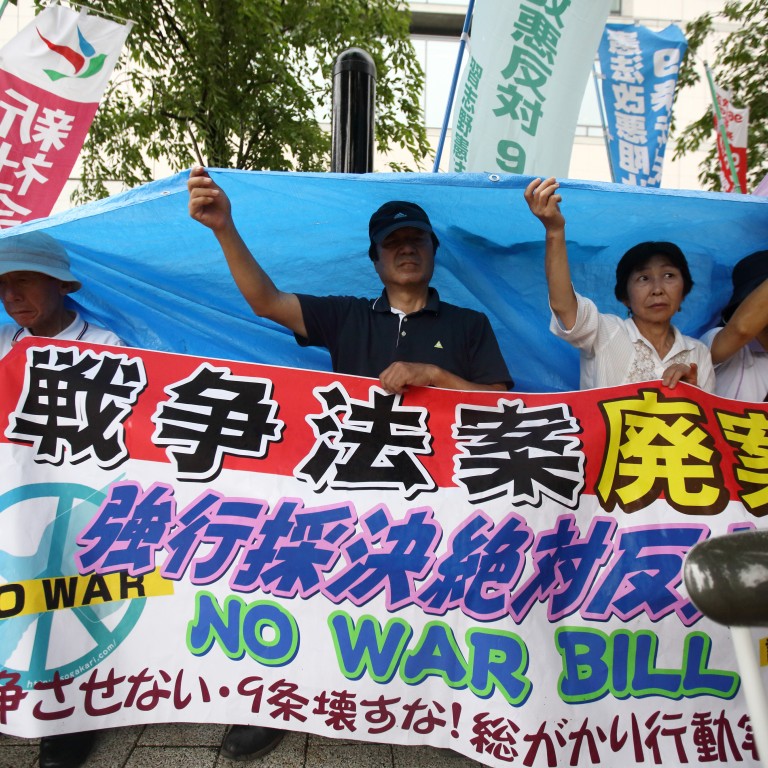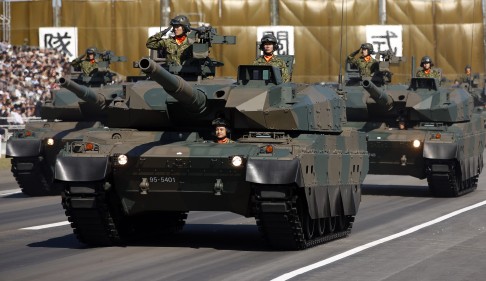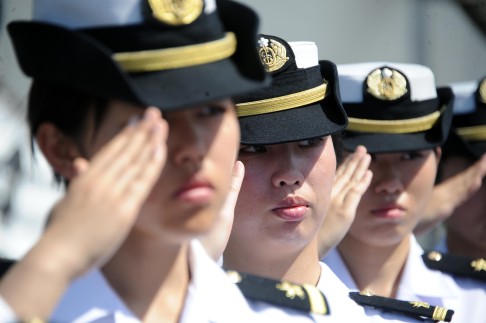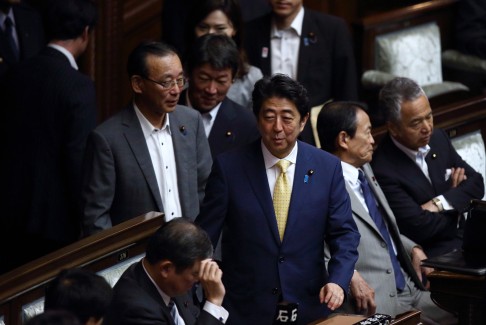
Why Japan’s military legislation is so controversial
Japanese Prime Minister Shinzo Abe’s legislative push to see troops sent to fight abroad for the first time since the second world war has provoked huge protests in Japan, and has provoked concern from China.
Here is a look at what the controversy is about:
HOW WOULD IT CHANGE JAPAN’S MILITARY ROLE?
Japan’s military, called the Self-Defence Forces, is restricted by a post-second world war pacifist constitution to defending itself and the country. The biggest change would allow the Self-Defence Forces to defend allies that come under attack, under a concept known as collective self-defense – which previous governments have considered unconstitutional.
For example, Japan would be able to intercept a missile flying over Japan and headed for US territory. Currently it can shoot down a missile only when it’s fired at Japan. Or if an American warship came under attack, Japanese forces could join the fight if the situation were deemed an “imminent critical threat” to Japan.
Farther afield, Japan would be able to carry out minesweeping in Middle East waters to protect ships bringing oil to Japan. It also could send reconnaissance aircraft to patrol the South China Sea to help monitor China’s activity. In international peacekeeping, Japan would be able to provide logistical support for other militaries and protect civilian workers.
All these activities could only be carried out under certain conditions, such as a critical threat to Japan’s survival – an interruption to oil shipments could be one. Opponents of the bills say the conditions are overly vague, giving future governments leeway to interpret them as they see fit.

WHY ARE THE CHANGES SO CONTROVERSIAL?
Moves to expand the military’s role are almost always contentious in Japan, and an unexpected development made this one particularly so.
At an unrelated hearing, three constitutional experts, including one invited by Abe’s ruling party, unanimously declared the legislation unconstitutional. That grabbed the public’s attention and boosted the opposition in what otherwise had been a difficult-to-follow debate.
Many Japanese are wary of any change to the country’s pacifist stance, which has brought seven decades of peace and relative prosperity. Some worry that deepening US-Japan security ties will make Japan a more likely target of anti-US extremists, and increase the risk of becoming embroiled in a US-led conflict. Some students even worry the legislation could lead to a military draft as Japan’s population shrinks and ages
Abe has said that Japan would not send troops into battle overseas. He and other backers of the legislation argue that the world has changed, and in the face of perceived potential threats such as China and North Korea, Japan needs to enhance its deterrence to preserve its peace and prosperity. It’s a fundamental divide over how best to keep Japan safe for future generations.

ARE THEY CONSTITUTIONAL?
Most constitutional scholars say Japan’s pacifist charter does not allow collective self-defence, though some disagree. The legislation could face a court challenge once it becomes law.
Abe’s cabinet approved a reinterpretation of the constitution last year to allow collective self-defence, reversing previous interpretations.
Sota Kimura, a Tokyo Metropolitan University constitution professor, says allowing collective self-defence when Japan is not under attack is tantamount to a pre-emptive strike, which is unconstitutional.
Many experts say that Abe should revise the constitution if he wants to allow self-defence. Abe isn’t against revision – it’s one of his long-term goals – but it’s a daunting prospect, requiring two-thirds approval by parliament and a public referendum. Reinterpretation was a practical solution to moving forward quickly on his security agenda.

WHAT’S NEXT?
The legislation goes to the upper house, which has 60 days to vote. Opposition lawmakers will do their utmost to delay or scrap the legislation, but even if the upper house rejects it or fails to vote, it will go back to the more powerful lower house, which can pass it with a two-thirds majority.
Experts say the real challenge will be to train and develop the expertise and capability of the Self-Defence Forces, which have only experienced non-combat missions, for possible higher-risk missions as Abe pushes his policy of what he calls a proactive contribution to peace.

